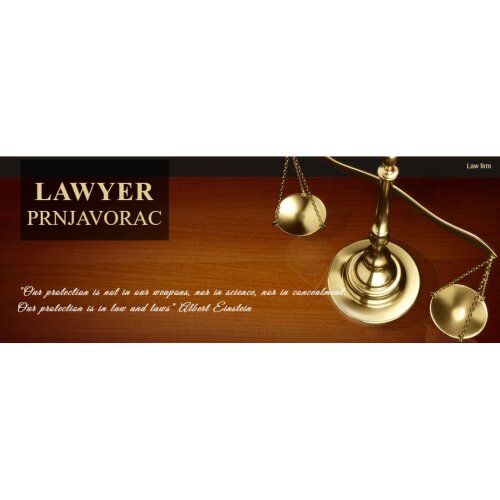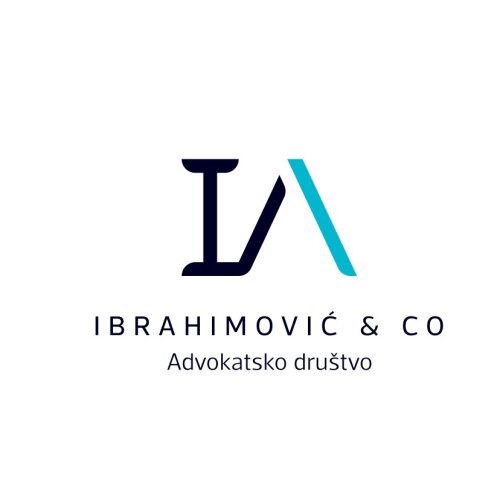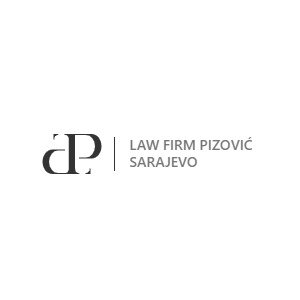Best Water Law Lawyers in Bosnia and Herzegovina
Share your needs with us, get contacted by law firms.
Free. Takes 2 min.
Or refine your search by selecting a city:
List of the best lawyers in Bosnia and Herzegovina
About Water Law in Bosnia and Herzegovina
Water Law in Bosnia and Herzegovina governs the ownership, management, and use of water resources throughout the country. Due to its unique political structure, water regulation is split between two entities - the Federation of Bosnia and Herzegovina and Republika Srpska - each with its own legislative and administrative frameworks. Water Law is crucial for regulating access to water supplies, protecting water quality, and ensuring sustainable use for agriculture, industry, household consumption, and environmental protection. With increasing demand and environmental concerns, having a clear understanding of these laws is essential for individuals, businesses, and communities.
Why You May Need a Lawyer
Seeking legal assistance in Water Law may be necessary in a variety of situations. Here are some common scenarios:
- Disputes over access to, or ownership of, water sources such as rivers, wells, or irrigation channels
- Issues with water usage rights for agricultural, industrial, or private purposes
- Regulatory compliance concerning water quality standards and pollution prevention
- Obtaining permits for water extraction, construction near water bodies, or wastewater discharge
- Compensation claims for flood damages or water pollution
- Enforcement actions or sanctions from water management authorities
- Negotiating water rights agreements among landowners or between municipalities
- Environmental impact assessments involving water resources
Legal experts can help you navigate complex regulations and ensure your actions comply with local and national laws.
Local Laws Overview
Water Law in Bosnia and Herzegovina is highly decentralized. The most important legal acts are entity-level Water Laws - the Law on Waters of the Federation of Bosnia and Herzegovina and the Law on Waters of Republika Srpska. Key aspects include:
- Water resources are defined as public goods, managed by the state or entity governments
- Permits are required for water extraction, pollution discharge, and construction near water sources
- Integrated water management is aimed at protecting water quality and ecosystems
- Users must pay water fees for abstraction and discharge
- Strict penalties apply for illegal pollution, unauthorized use, or environmental damage
- Special protections apply to drinking water sources, flood zones, and protected areas
- Cross-entity and international agreements are necessary for rivers that cross administrative boundaries
It is important to understand which entity's law applies, as requirements can differ significantly between the Federation and Republika Srpska.
Frequently Asked Questions
What qualifies as a water resource under Bosnia and Herzegovina's law?
Water resources include surface waters (rivers, lakes), underground waters, springs, and rainwater, as well as artificial reservoirs and related infrastructure.
Who owns water in Bosnia and Herzegovina?
Water resources are public property managed by state, entity, or local authorities. Private ownership of water sources is not generally permitted.
Do I need a permit to use water for my business or farm?
Yes, permits are required for commercial or agricultural water use, as well as for construction near water bodies and discharge of wastewater.
How can I apply for a water permit?
Applications should be submitted to the relevant water authority in your entity, along with required documentation such as technical plans and environmental assessments.
What happens if I use water resources without a permit?
Unauthorized use of water resources can result in fines, cessation orders, and even criminal charges in cases of severe environmental harm.
How are disputes over water rights resolved?
Disputes can be resolved through administrative procedures or in the courts, with the assistance of legal counsel or mediation where appropriate.
Are there special rules for rivers that cross entity or national borders?
Yes, cross-border watercourses are managed by joint commissions and agreements between relevant authorities, including international agreements for rivers shared with neighboring countries.
What protections exist for drinking water supplies?
Drinking water sources are protected by strict quality standards, buffer zones, and restrictions on nearby activities that could cause contamination.
Can I build structures near a river or lake?
Construction near water bodies generally requires a permit and environmental assessment, with special conditions to prevent flooding or ecosystem damage.
Who is responsible for flood prevention and response?
Flood management is coordinated between state, entity, and municipal authorities, with responsibilities divided based on the scale and location of the risk.
Additional Resources
If you need more information, the following entities and organizations can be helpful:
- Ministry of Agriculture, Water Management and Forestry of the Federation of Bosnia and Herzegovina
- Ministry of Agriculture, Forestry and Water Management of Republika Srpska
- Agency for the Sava River Basin
- Municipal water management offices
- Environmental NGOs focusing on water protection
- Bar associations offering referrals for water law specialists
Contacting these bodies can help you identify the specific requirements and procedures for your issue.
Next Steps
If you believe your situation requires legal assistance in Water Law, consider the following steps:
- Gather all relevant documents, such as land ownership papers, correspondence with authorities, and environmental assessments
- Identify which entity's jurisdiction applies to your case
- Consult a specialized lawyer with experience in Water Law and public administration procedures
- Contact your local water management authority to clarify permits or ongoing procedures
- If urgent, act promptly to avoid fines or sanctions
- Prepare questions and objectives before your legal consultation to make the most of your meeting
Water Law can be complex due to multiple laws and authorities, so professional guidance is the best way to protect your interests and ensure compliance.
Lawzana helps you find the best lawyers and law firms in Bosnia and Herzegovina through a curated and pre-screened list of qualified legal professionals. Our platform offers rankings and detailed profiles of attorneys and law firms, allowing you to compare based on practice areas, including Water Law, experience, and client feedback.
Each profile includes a description of the firm's areas of practice, client reviews, team members and partners, year of establishment, spoken languages, office locations, contact information, social media presence, and any published articles or resources. Most firms on our platform speak English and are experienced in both local and international legal matters.
Get a quote from top-rated law firms in Bosnia and Herzegovina — quickly, securely, and without unnecessary hassle.
Disclaimer:
The information provided on this page is for general informational purposes only and does not constitute legal advice. While we strive to ensure the accuracy and relevance of the content, legal information may change over time, and interpretations of the law can vary. You should always consult with a qualified legal professional for advice specific to your situation.
We disclaim all liability for actions taken or not taken based on the content of this page. If you believe any information is incorrect or outdated, please contact us, and we will review and update it where appropriate.
Browse water law law firms by city in Bosnia and Herzegovina
Refine your search by selecting a city.













